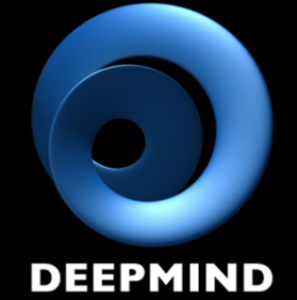
Machine Learning Gets a Boost from Google

Search giant Google announced a partnership with Oxford University researchers that will target artificial intelligence applications such as image recognition and natural language understanding.
Google said U.K. researchers with its recently acquired DeepMind initiative would work with Oxford AI specialists who earlier this year cofounded Dark Blue Labs. The cofounders, Nando de Freitas, Phil Blunson, Edward Grefenstette and Karl Moritz Hermann, are considering leading experts in the use of “deep learning” for machine understanding of natural language.
The researchers “will be spearheading efforts to enable machines to better understand what users are saying to them,” Google said in announcing the partnership on Oct. 23.
Also joining Google’s DeepMind team are the cofounders of Vision Factory, a computer vision startup launched by Karen Simonyan, Max Jaderberg and Andrew Zisserman.
Google describes DeepMind’s mission as combining “the best techniques from machine learning and systems neuroscience to build powerful general purpose learning algorithms.”
According to the initiative’s website, London-based DeepMind Technologies was formed in 2011 by Demis Hassabis, Shane Legg and Mustafa Suleyman. Hassabis, a master chess player at age 13, is a neuroscience and machine-learning expert who previously worked at the Computer Laboratory at Cambridge University.
Suleyman is listed as head of applied AI at DeepMind and previously cofounded a firm focusing on conflict resolution. Legg’s research has focused on “machine superintelligence.”
Google acquired the AI research company in January 2014, reportedly for more than $500 million. Facebook was also said to be in talks to acquire DeepMind last year.
Google hired inventor and futurist Ray Kurzweil in 2012 to serve as director of engineering to focus on machine learning and language processing.
The DeepMind partnership with the Oxford researchers and Dark Blue Labs helps clarify Google’s AI strategy. DeepMind’s general-purpose learning algorithms target simulation and gaming along with e-commerce applications. Applications resulting from the partnership with Oxford and Dark Blue Labs could presumably be applied to data analytics for e-commerce applications.
Google has separately developed a massively parallel machine learning system called Sibyl used to make predictions and recommendations based on user-specific data gathered from its Internet applications.
According to the U.K. startup’s website, Dark Blue Labs is still ramping up its engineering staff. The startup describes itself as “learning deep structured and unstructured representations of data to make intelligent products, including natural language understanding, a reality.”
The other Oxford AI spinoff, Vision Factory, specializes in object and recognition technologies “based on deep learning.” Its object recognition tool is said to spot “thousands and objects and actions” in images and videos. Its text recognition system spots text in images and video.
Of the seven AI researchers joining DeepMind, Google said the three Oxford computer science professors would retain their joint teaching appointments at the prestigious university. The acquisition is expected to provide DeepMind with about 10 new employees. It reportedly has a staff of about 100 engineers and researchers.
Recent items:
Inside Sibyl, Google’s Massively Parallel Machine Learning Platform
Lessons in Machine Learning from GE Capital































